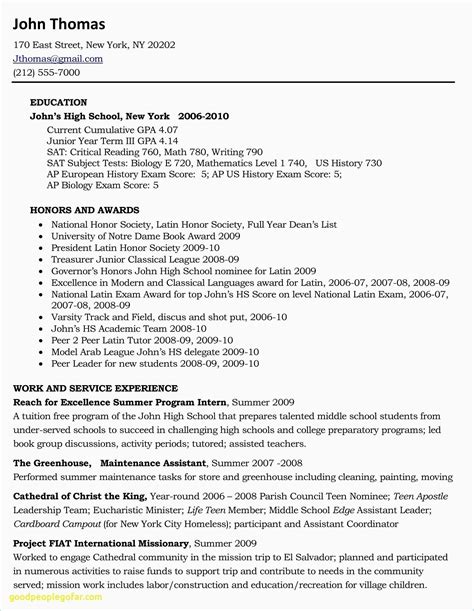Guidelines For Including Gpa On Your Resume

As a job seeker, you want your resume to stand out from the rest. One way to do this is by including your GPA, or grade point average, on your resume. However, it’s important to know how to do this correctly to ensure you’re presenting yourself in the best light. Here are some guidelines for including your GPA on your resume.
1. Determine if Your GPA Should Be Included
The first step in including your GPA on your resume is determining if it should be included at all. If you have a high GPA, it can be a great way to showcase your academic achievements and stand out from other applicants. However, if your GPA is low, it may be best to leave it off your resume altogether.
2. Decide Which GPA to Include
If you’ve decided to include your GPA on your resume, the next step is deciding which GPA to include. You can include your cumulative GPA, which is your overall GPA for all courses taken, or your major GPA, which is your GPA for courses within your major. It’s important to choose the GPA that best showcases your academic achievements.
3. Know When to Include Your GPA
There are certain circumstances when it’s appropriate to include your GPA on your resume. For example, if you’re a recent graduate with limited work experience, your GPA can help showcase your academic achievements. Similarly, if you’re applying for a job in a field related to your major, your major GPA can be a great addition to your resume.
4. Know When Not to Include Your GPA
On the flip side, there are also circumstances when it’s best not to include your GPA on your resume. If you’ve been out of school for several years and have gained work experience in your field, your GPA may not be as relevant. Similarly, if your GPA is low, it may be best to leave it off your resume altogether.
5. Format Your GPA Correctly
When including your GPA on your resume, it’s important to format it correctly. You can either include it in your education section or create a separate section for it. If you choose to include it in your education section, list it alongside your degree, school name, and graduation date. If you create a separate section for it, label it “GPA” and list your GPA alongside your other qualifications.
6. Be Honest About Your GPA
While including your GPA on your resume can be a great way to showcase your academic achievements, it’s important to be honest. Don’t round up your GPA or include courses that you didn’t actually take. Honesty is always the best policy.
7. Showcase Other Qualifications
While your GPA can be a great addition to your resume, it’s important to showcase other qualifications as well. Include any relevant work experience, extracurricular activities, or volunteer work that showcases your skills and abilities.
8. Tailor Your Resume to the Job
When including your GPA on your resume, it’s important to tailor your resume to the job you’re applying for. If the job requires a certain GPA or is in a field related to your major, be sure to highlight your relevant qualifications.
9. Proofread Your Resume
Before submitting your resume, be sure to proofread it for any errors or typos. A well-written and error-free resume can make all the difference in landing the job.
10. Seek Professional Help
If you’re unsure about how to include your GPA on your resume or need help crafting the perfect resume, consider seeking professional help. A career counselor or resume writer can provide valuable guidance and advice.
Conclusion
Overall, including your GPA on your resume can be a great way to showcase your academic achievements and stand out from other applicants. However, it’s important to know when to include it, which GPA to include, and how to format it correctly. By following these guidelines, you can create a resume that showcases your qualifications and helps you land your dream job.
FAQs
Q: Should I include my GPA on my resume?
A: If your GPA is high and relevant to the job you’re applying for, it can be a great addition to your resume. However, if your GPA is low or not relevant, it may be best to leave it off.
Q: Which GPA should I include on my resume?
A: You can include your cumulative GPA or your major GPA, depending on which one best showcases your academic achievements.
Q: When is it appropriate to include my GPA on my resume?
A: It’s appropriate to include your GPA on your resume if you’re a recent graduate with limited work experience or if you’re applying for a job in a field related to your major.
Q: Should I round up my GPA?
A: No, it’s important to be honest about your GPA. Don’t round up or include courses that you didn’t actually take.
Q: How can I showcase other qualifications on my resume?
A: Include any relevant work experience, extracurricular activities, or volunteer work that showcases your skills and abilities.
